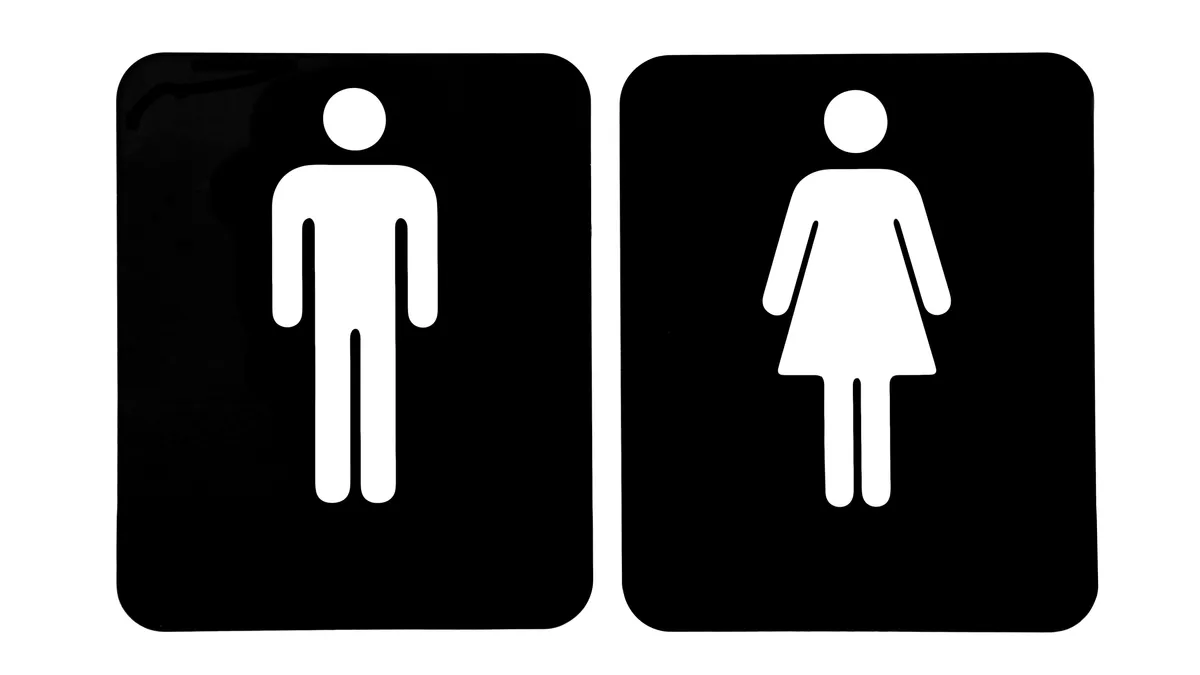UPDATE: May 17, 2023: Florida Gov. Ron DeSantis signed HB 1521 on Wednesday as part of a legislative package titled “Let Kids Be Kids.” The legislative package includes laws addressing surgical procedures for youth, expanding parental rights in education and the use of public bathrooms aligned to a person’s gender identity.
Dive Brief:
- A bill that would limit students' bathroom use to match the gender they were assigned at birth was approved by the Florida Senate last week and is expected to be signed by Gov. Ron DeSantis.
- The bill — CS/HB 1521 — applies to all public restrooms including those in K-12 public and private and higher education facilities, and it requires these institutions to update their student codes of conduct with disciplinary action against any student or staff who willfully enters a restroom designated for a gender other than the one they were assigned at birth.
- The bill, one of the last acts of this year's Florida legislative session, joins several state-approved policies that restrict discussion, curriculum and materials about LGBTQ+ people. Opponents contend these actions will subject transgender people to harassment, while supporters have said the measures ensure safety and adherence to state-approved curricula.
Dive Insight:
In April, the Florida State Board of Education approved a request by DeSantis to expand Parental Rights in Education, a law referred to by opponents as "Don't Say Gay,” from elementary to higher grades. Those measures limit discussion, instruction and policies around gender identity.
Other states have also limited instruction and school materials about the LGBTQ+ community and people of color. According to PEN America, there have been 1,477 instances of individual books banned during the first half of this school year. That's an increase from 1,149 book bans recorded in spring 2022. Books written by or including themes related to people of color or those in the LGBTQ+ community are the most prevalent targets of book bans.
Legislation that regulates students' pronoun use has also been a focus in almost half of state legislatures this year, according to the National Conference on State Legislatures. Most of those proposals prevent school employees from using students’ pronouns if they don’t align with their sex assigned at birth or their legal name, unless first notifying or getting parental consent.
At the federal level, the House passed legislation in April that would restrict students in K-12 and higher education to play on sports teams that match their biological genders. That bill, which supporters say ensures compliance with Title IX, seeks to recognize that a student’s sex is based on reproductive biology and genetics at birth.
When specifically considering bathroom use in schools, some districts have designed gender-neutral bathrooms when renovating or constructing facilities, possibly as a way to get ahead of the controversial issue.
Nonprofit LGBTQ+ youth advocacy organization GLSEN, in a 2019 school climate survey, found many LGBTQ+ students avoided gender-segregated spaces in school because they felt unsafe or uncomfortable. Some 45.2% of students surveyed said they avoid bathrooms, and 43.7% steer clear of locker rooms.
Most transgender adults (66%) said they were under the age of 18 when they began to understand their gender was different from the one assigned at birth, according to a poll published in March by KKF and The Washington Post. One-third of respondents (32%) said they began to understand when they were 10 years old or younger, and 34% said they were between the ages of 11 and 17.












